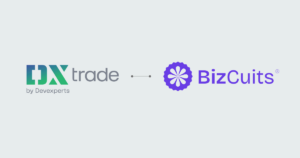Swiss FINMA confirms receipt of enquiry from Libra Association
The Libra Association has asked the Swiss regulator for an assessment of the classification of the planned Libra project.

The Swiss Financial Market Supervisory Authority (FINMA) has earlier today confirmed that the Libra Association has requested an assessment of how the supervisory authority would classify the planned Libra project including the issuance of a ‘stable coin’ under Swiss supervisory law.
FINMA explains that in Switzerland, such a project would fall under financial market infrastructure regulation. The project as it is presently envisaged would require a payment system licence from FINMA, on the basis of the Financial Market Infrastructure Act (FMIA). Regulatory requirements for payment systems in Switzerland are based on the prevailing international standards, particularly the Principles for Financial Market Infrastructures (PFMI). These requirements also apply to the management of cyber risks.
Also, a Swiss payment system is automatically subject to the Anti-Money Laundering Act. The most stringent international anti-money laundering standards would need to be ensured throughout the entire ecosystem of the project. Such an ecosystem must be immune against elevated money laundering risks.
Under the FMIA, all additional services that increase the risks of a payment system must be subject to corresponding additional requirements. This means that all the potential risks of a Swiss payment system, including bank-like risks, can be addressed by imposing appropriate requirements in line with the maxim ‘same risks, same rules’. Due to the issuance of Libra payment tokens, the services planned by the Libra project would clearly go beyond those of a pure payment system and therefore be subject to such additional requirements.
In particular, these extra requirements would relate in particular to capital allocation (for credit, market and operational risks), risk concentration and liquidity as well as the management of the Libra reserve. For bank-like risks, for example, bank-like regulatory requirements would apply. A Swiss payment system licence would permit a combination of the strengths of banking and infrastructure regulation.
A necessary condition for being granted a licence as a payment system would be that the returns and risks associated with the management of the reserve to be borne entirely by the Libra Association and not – as in the case of a fund provider – by the ‘stable coin’ holders.
FINMA stresses that a possible licensing procedure under the Swiss supervisory law would only commence once a specific licensing application is received by FINMA. In accordance with its practice, FINMA would neither provide public information on the status of any ongoing licensing procedure nor speculate on when it may be complete.
Other questions raised in the context of the Libra project, such as those relating to tax law, competition law or data protection law, go beyond the scope of supervisory law and are therefore outside FINMA’s remit.
About two weeks ago, the Swiss regulator published guidance about the application of regulatory requirements for payments on the blockchain for financial services providers under FINMA supervision. The guidance on virtual asset service providers (VASPs) concerns blockchain service providers such as exchanges, wallet providers and trading platforms. It requires that the existing rules on combating money laundering also apply to such service providers.
FINMA noted in its guidance that blockchain-based business models cannot be allowed to circumvent the existing regulatory framework. This applies particularly to the rules for combating money laundering and terrorist financing, where the inherent anonymity of the blockchain presents increased risks. For this reason, Switzerland has always applied the Anti-Money Laundering Act to blockchain service providers.









